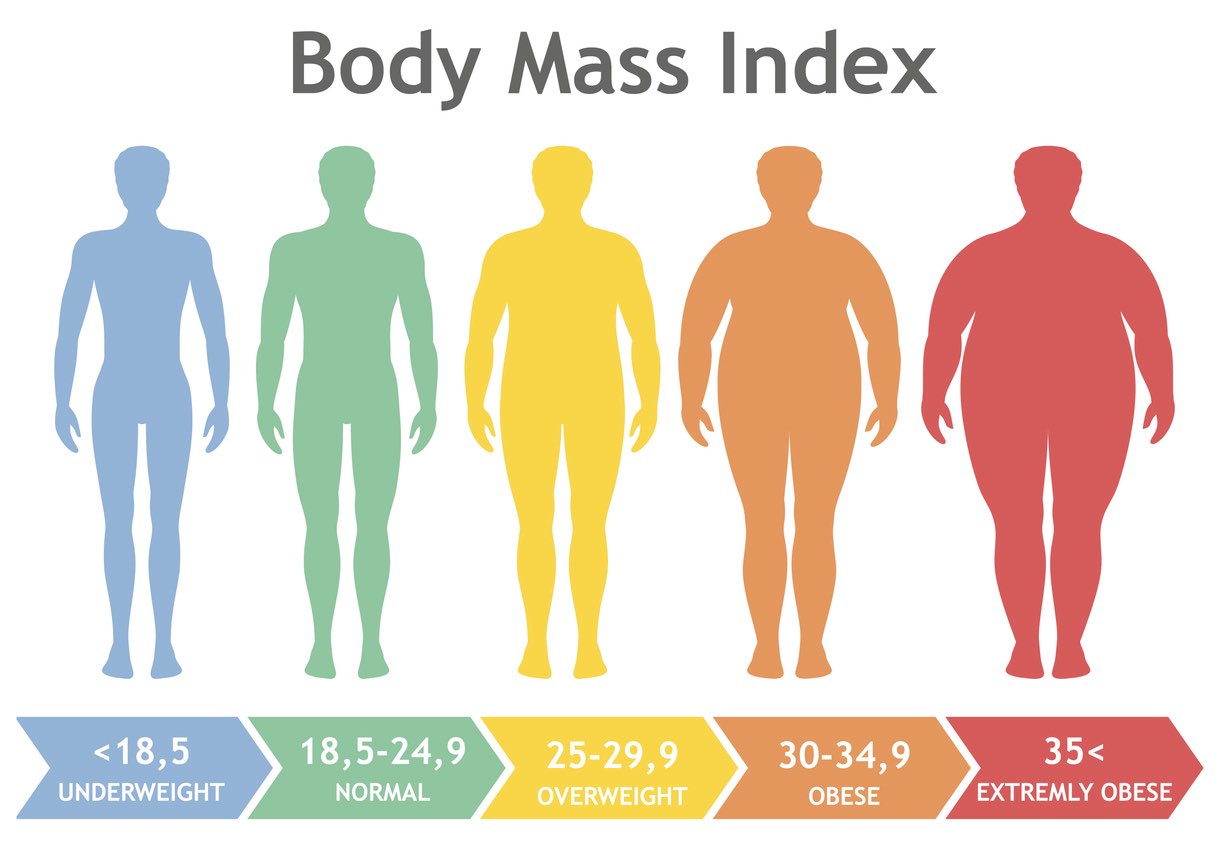BMI is between 30-34.99 (Obese Class 1)
Individuals with a BMI of 30-34.99 are in a physically unhealthy condition, which puts them at risk for serious ilnesses such as heart disease, diabetes, high blood pressure, gall bladder disease, and some cancers. This holds especially true if you have a larger than recommended Waist Size. These people would benefit greatly by modifying their lifestyle. Ideally, see your doctor and consider reducing your weight by 5-10 percent. Such a weight reduction will result in considerable health improvements.

Note
Since body fat percentage calculations use total body weight and not estimates of lean muscle mass and fat, BMI can not determine between the overweight and the more muscular.
Use our body fat calculator and waist to hip ratio calculator in combination with our BMI calculator for a more accurate view of your body fat.
Obesity Treatment
The method of treatment depends on your level of obesity, overall health condition, and motivation to lose weight.
Treatment includes a combination of diet, exercise, behavior modification, and sometimes weightloss drugs. In some cases of severe obesity, gastrointestinal surgery may be recommended.
If you are overweight, losing as little as 7-10 percent of your body weight may improve many of the problems linked to being overweight, such as high blood pressure and diabetes.
Slow and steady weight loss of no more than 1-2 pounds per week is the safest way to lose weight. Too rapid weight loss can cause you to lose muscle rather than fat. It also increases your chances of developing other problems, such as gallstones and nutrient deficiencies. Making long-term changes in your eating and physical activity habits is the only way to lose weight and keep it off!
Whether you are trying to lose weight or maintain your weight, you must improve your eating habits. Eat a variety of foods, especially pasta, rice, wholemeal bread, and other whole-grain foods. Reduce your fat-intake. You should also eat lots of fruits and vegetables.
Making physical activity a part of your daily life is an important way to help control your weight. Try to do at least 30 minutes of physical activity a day on most days of the week. The activity does not have to be done all at once. It can be done in stages: 10 minutes here, 20 minutes there, providing it adds up to 30 minutes a day.
Health Benefits of Losing Weight
Getting to a healthy weight can lower your risk of type 2 diabetes, heart disease and certain cancers. Losing just 5 to 10 percent of your body weight can also:
- Lower your blood pressure
- Lower your blood sugar
- Raise your HDL (the good cholesterol)
- Lower your LDL (the bad cholesterol)
- Lower your triglycerides